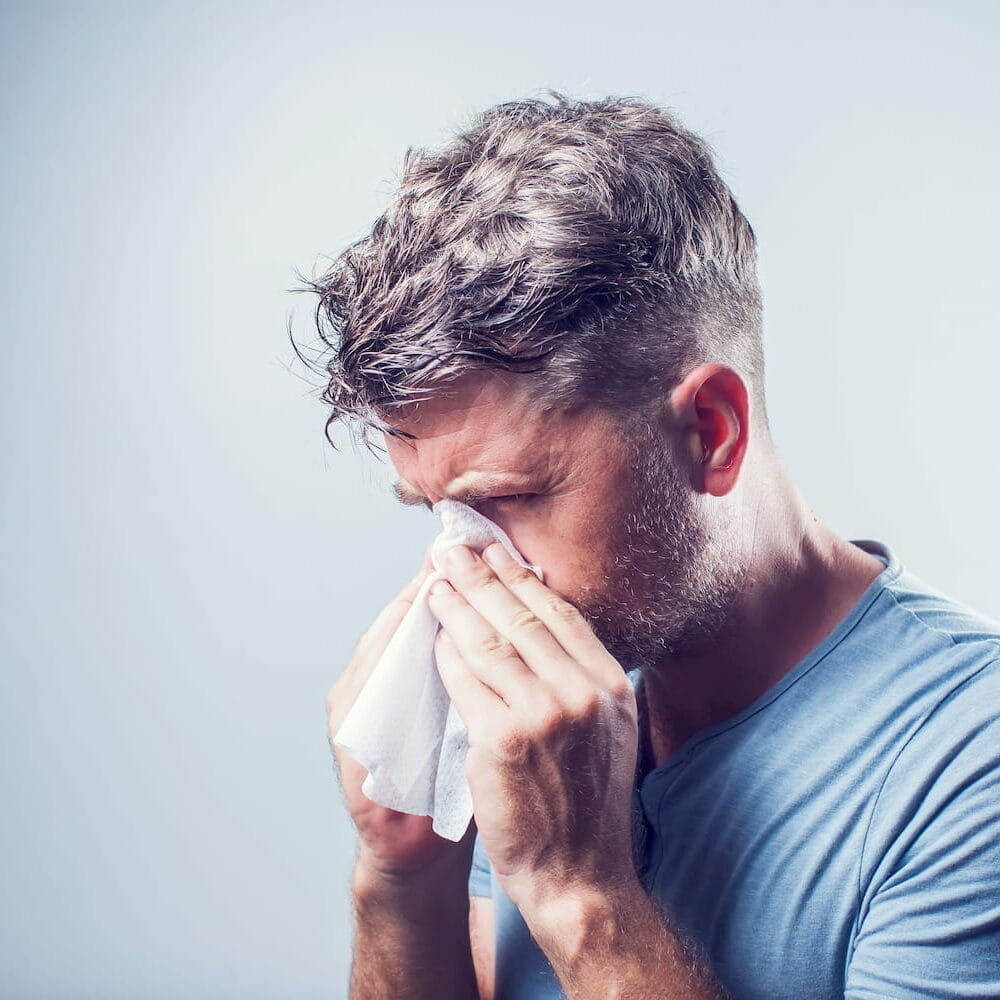Have you found that you have lost your taste and smell since contracting COVID-19? Is it starting to affect your everyday life and causing you to struggle? Our team of expert ENT specialists is here to help you.
Loss of taste and smell after COVID-19
A loss of taste and or smell is probably one of the strangest symptoms of the illness, especially if you have long COVID and find that it turns into a permanent loss of smell and taste. Studies have shown that up to 50% of people lose their ability to smell after contracting COVID, and although most get this back within a matter of weeks, some find it is a permanent symptom.
Although research is being carried out into why this is happening, there are still no clear answers regarding the loss of taste and smell COVID sufferers are reporting. One theory is that the virus causes inflammation inside the nose, which then impairs the way we taste and smell. Others have suggested COVID-19 damages the cells that support olfactory neurons and, until they regenerate, you cannot taste or smell.
For more information about the potential causes and tips on how to regain your sense of smell, please read our article How Does Covid-19 Affect Your Sense Of Smell?
How long does the loss of taste and smell last with COVID?
Smell and taste will usually return in around 4-6 weeks once the cells have regenerated, though in some cases this can take longer. Those that are elderly, suffer from existing medical conditions or have weakened immune systems may also find that it takes longer to come back. However, this is a case-by-case condition and some may find their loss of taste and smell will take longer to come back than others.
Can COVID cause permanent loss of smell and taste?
Unfortunately, COVID-19 can cause permanent loss of taste and smell, which is not only extremely inconvenient but can also affect your quality of life and mental health. Although we do not rely on our sense of taste and smell as much as our other senses, we do use them regularly. They can even help prevent dangerous situations like helping us to detect gas leaks, so it’s important to restore your sense of smell and taste as quickly as possible.
After long COVID, you may not necessarily experience a complete loss of taste or smell, but instead, things may taste different or even unpleasant. Food may taste bland, salty, sweet or metallic.

How to get your smell and taste back at home
Having no sense of taste or smell is frustrating, but luckily there are a few techniques you can use at home to try and restore them. The most common approach is an exercise called olfactory training. This ‘smell training’ involves sniffing the same four scents every day to try and recover your sense of smell through memory training.
Step 1: Find essential oils or strong but pleasant smelling items like roses, lavender, lemon, castor oil, garlic, ginger or peppermint
Step 2: Sniff each scent for at least 15 seconds
Step 3: perform twice a day for around 12 weeks
The olfactory nerve or ‘bulb’ interprets the sense of smell. The receptors reside in the olfactory mucosa, just below the roof of the nasal cavity. Many medical professionals believe that memory and smell are closely linked because the structure of the brain enables olfactory signals to pass through to the limbic system (the part of our brain that contributes to our emotional behavioural responses) quickly; which is why sometimes strong memories are triggered when you experience a certain smell, like someone’s perfume.
You may also find the following websites helpful for smell retraining - Smell Training - Fifth Sense or Smell Training. If this technique does not work, it may be time to see an ENT specialist.
Treatment for loss of smell and taste
Our professional experts are on hand to listen to your concerns and provide the best treatment depending on the extent of your loss of smell and taste, the length of time you have been experiencing it, your current health and many other factors.
We will never advise you to opt for surgery if we don’t think the benefit is greater than the risk, as your wellbeing is our number one priority.
It’s important to see an ENT specialist if:
- Your symptoms are not improving or they are getting worse
- You are concerned about your symptoms
- Experiencing other nasal problems
- Your symptoms are negatively impacting your daily life
It’s also important to see your GP if you are experiencing other long-term COVID-related symptoms.
How are we keeping patients safe during the pandemic?
- Remote consultations for your initial appointment
- PPE is worn by members of staff at all times
- Social distancing throughout the hospital
- Limited visitors to allow plenty of room to move around
During the remote consultation, we speak to you about your symptoms, discuss the options that are available and make arrangements for any further appointments.
There is no pressure to decide straight away, we will help you with support and advice for as long as you need before committing to any treatment.
What should I do before my appointment?
It may be a good idea to bring a list of questions along to your remote consultation so that we can make sure we cover everything you want during the session. It can be easy to forget important information, but if you do, you can always contact us again afterwards. We are always here to help.
If you would like to speak to us about your loss of smell and taste, or to book a remote consultation, our team of specialists would love to hear from you.
Contact
